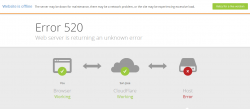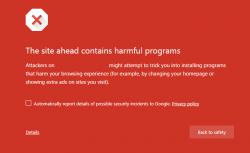Weekly News Roundup (12 July 2015)
I guess I should update everyone on my experiment with using the Microsoft Surface Pro 3 as my desktop, laptop and Windows tablet replacement. Simply speaking, it’s fantastic. When the SP3 is in the dock accessory, connected to my monitor with my Logitech wireless KB/m setup (the Logitech MX Master is a thing of beauty, BTW – well for right handed people anyway), it feels exactly likely using a desktop. On the go, when I have the Type Cover on, it can be used just like any laptop (the screen is a bit smaller though, but it is a very lovely screen though) and it’s quite good considering it’s not a “real” keyboard/trackpad, but just a cover accessory attached to a tablet. I don’t use it in pure tablet mode that much (that is, with the Type Cover removed or folded back), since it’s a too big and heavy to be used in the normal tablety way, although certainly still very usable.
Overall, it’s a great little device and more than capable for most types of work. And I’m really looking forward to Windows 10 as well, which will really make the device shine.
And no, I have not received any financial incentives from Microsoft to encourage me to make these positive statements (although I wouldn’t say no if they decide to send me a goodie or two, *hint* *hint*).
Also, this Star Wars Comic-con video almost made me weep sweet tears of joy! Just wanted to put it out there.
Ah, yes, the news roundup …
![]()
Once again, the RIAA has been caught, and “reprimanded” (this time by a US District Court) for trying to get everyone else to do its own work and leaving a large mess of collateral damage in its wake.
The RIAA tried to get content delivery network CloudFlare to close down sites that were using domain names similar to the now defunct Grooveshark, the music streaming that the RIAA shut down last year. But instead of identifying infringing sites and notifying CloudFlare, the RIAA filed an injunction to force CloudFlare to close down any site that has the term “grooveshark” as part of its domain name.
This means that sites that are perfectly legal would have to be shut down, just because they had the “offending” keyword as part of their domain name. CloudFlare, who along with other service providers, quickly filed their opposition to the injunction, arguing that freedom of speech rights would be put at risk. CloudFlare even provided a real example of how the RIAA’s actions could have serious and unexpected consequences by pointing to protest site groovesharkcensorship.cf, which was set up specifically to protest the RIAA’s actions. This totally legitimate site that was exercising its free speech rights to criticize the RIAA was shut down due to the RIAA’s injunction, something I’m sure even the RIAA had not intended.
Luckily, the court sided with CloudFlare’s argument and ended the RIAA’s attempt again to make things easy for themselves (and screw the consequences).
It seems to me that the RIAA has started to lose the plot with their lawsuits. They’re not even going after actual infringing sites anymore – any site that even hints at being related or friendly to unauthorised music downloads is now a target. What hasn’t changed is the RIAA’s insistence on assigning responsibility to everyone else, and getting them to do the heavy lifting. It’s something that the District Court didn’t agree with though, saying that the onus is still on the rights-holders to identify infringing sites (after all, they’re the ones best placed to know whether their own properties have been infringed or not).
All of this misses the point anyway. The point has always been, and should always be about money being lost to piracy, and ways to minimize this. Spraying lawsuits everywhere does not really solve any problems, and the problem in the first place may not be as big as the record companies believe. If you don’t want to take my word for it, then listen to someone who actually works in the music industry, DJ and producer David Guetta. Guetta’s pragmatic views towards piracy are particularly refreshing – while he prefers an “ideal” world where there is no piracy and he gets paid (a lot more) for every download or listen, he also realises that piracy is not a zero sum game. Guetta says that piracy helps him to gain more fans that he otherwise wouldn’t get if these people were successfully barred from downloading illegally, and that these fans will spend money at some stage, whether it’s concerts or merchandise, or even re-buying the songs they’ve downloaded illegally to support the artist.
Of course, the record labels represented by the RIAA may not get some or all of the money that these downloaders will spend at some stage. But that’s because making music available to the listening public is a job that’s no longer worth as much as it once was (getting a song being heard by people, or published as a record, once upon a time, was a tough task – today, we have self publishing, and piracy can do some the promotional work that artists once had to rely on record labels to do). It’s called progress, and this is what the RIAA is trying desperately to fight.
——
The news that Google’s Chrome browser has started to block pretty much all of the major torrent sites, including KickassTorrents, Torrentz and RARBG. The sites were blocked with a warning that these sites were offering “harmful programs”.
Website owners can normally check Google Webmaster Tools to see why their site was blocked, but the operators of these torrent sites could not find anything listed as being wrong.
So the first thought that many had was that this may be some kind of new anti-piracy measure being rolled out by Google, under coercion from the MPAA and others.
But the actual situation was much more simpler. The problem stems from advertising and sponsored links that these sites had, which may have linked to other sites that were offering the programs Google was warning about (specifically, Potentially Unwanted Programs, or PUPs, such as toolbar installers and other programs and offers bundled with installers). Google has been particularly sensitive in blocking these kind of sites recently, and perhaps a tweak in their algorithm flagged the torrent sites, most of which may have been using the same advertiser or software sponsor. The reason Google Webmaster Tools (GWT) did not show anything at first was because the information in GWT is delayed, something I have personal experience with in relation to false positive DMCA requests that I’ve had to deal with in GWT.
Most of the blocks have been removed now, once the sites in question dealt with the issue and submitted a review in GWT, but perhaps the bigger issue here is how easy it was for Google to block access to so many popular sites at once. It’s something that will give rights-holders bad ideas, and perhaps it also point to the monopolistic position Google now finds themselves in (Google Search and Chrome are the most popular platforms in their respective fields) – too much power concentrated in one company, whether that power was intentionally procured or naturally gathered, is never a good thing.
![]()
There’s a new updated PS4 model currently available (only) in Japan, and a teardown has revealed some significant updates with the hardware. An updated processor (still a 28nm chip though), RAM and other chips means power savings, which also means a quieter, slower spinning fan. This greener, quieter PS4 still retains the old form factor, so it’s definitely not the “slim” edition that some are convinced will be released soon (and if anything, this model refresh means it’s now less likely that a slim version will be coming soon, not after Sony has put in the effort to design this new model – the slim version will require a much bigger re-design that what’s found here). Expect this new PS4 model to make it ways to the US and other Western markets soon (before Christmas, I bet).
——
That’s it for this week. I’m going to go back and watch that Star Wars Comic-con video another 10 times. Oh yes. See you soon!




